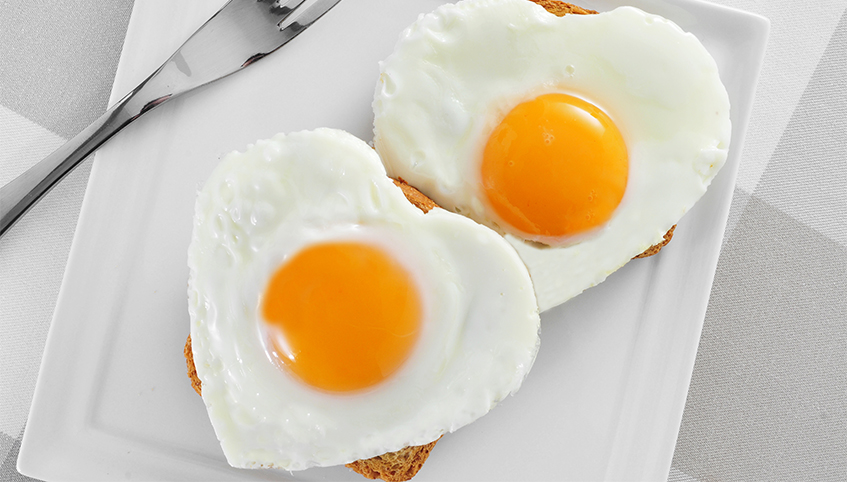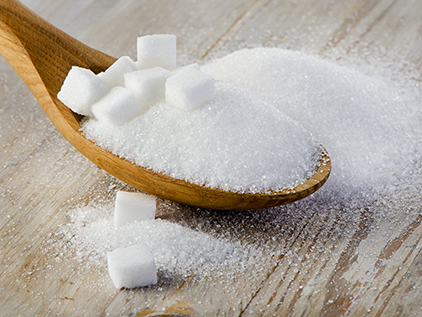Good news is on the way for egg lovers: The United States Dietary Guidelines Advisory Committee has proposed removing current dietary restrictions on cholesterol, a drastic shift from the last 40 years of government warnings.
"We are finding more and more that the amount of cholesterol in our diet doesn't necessarily affect the amount of cholesterol in our blood," says Nicolette Jones, clinical dietitian at The University of Kansas Health System. "The jury is still out, but so far, there's insufficient evidence that high cholesterol foods cause high blood cholesterol."
The American Heart Association issued its first warning about excess cholesterol intake in the 1960s. This warning was based on a very early study that found rabbits fed a high-cholesterol/high-fat diet developed blocked arteries. Other studies showed similar results, leading scientists to the now common belief that a diet high in cholesterol elevates blood cholesterol levels.
"When a patient eats a lot of high-fat foods that contain cholesterol and fat, we do sometimes see cholesterol numbers rise," Jones states. "But cholesterol is one side of the fat molecule, and it isn't necessarily to blame."
Expired logic
In 2010, when the panel last convened, members ruled that excess cholesterol in the diet was a public health concern. They recommended less than 300 mg of cholesterol daily for the general public, which is about the equivalent of 1 egg.
So why the change in opinion?
Over the last several decades, more advanced studies have shown no definitive link between dietary cholesterol and blood cholesterol. Instead, researchers are finding that the science of cholesterol and how it affects the body is extremely complicated.
"Cholesterol has had a bad rap for a long time," Jones says. "But just saying no to eggs because of the cholesterol content doesn't make sense anymore."
Understanding cholesterol
Cholesterol is a type of fat found in the blood and is generally divided into 2 categories:
- Low-density lipoprotein (LDL) cholesterol: Nicknamed "lousy cholesterol," LDL cholesterol causes plaque to build in the arteries.
- High-density lipoprotein: "Helpful" HDL cholesterol acts like a garbage man to remove bad cholesterol from the blood.
The total levels of HDL and LDL cholesterol in the blood can help determine if a person is at risk for heart disease. Blood cholesterol levels are determined by a number of factors, including diet, age, weight, gender and genetics.
The old way of thinking about cholesterol placed greater emphasis on the amount of cholesterol consumed in a person's diet. However, most researchers now agree that about 85% of blood cholesterol levels are produced by the body, and merely 15% come from external sources.
The new normal
Heart disease is the leading cause of global death, and it's also No. 1 in America (above all cancers combined). Considering that high cholesterol is a leading risk factor for heart disease, the new guidelines will have a tremendous impact on determining what constitutes a heart-healthy diet.
"We're moving toward a diet of whole foods, which I recommend," Jones says. "There's a bigger focus on different areas of nutrition that need to be at the forefront of our minds - like carbohydrates and added sugar."
So is it safe to put eggs back on your shopping list?
"I would recommend talking to your doctor or nutritionist. Eggs can be part of a healthy diet for the right patient," Jones says. "The egg yolk still contains fat. But adding it to a healthy, fiber-rich diet is not going to produce outrageous cholesterol changes."
Craving eggs now? Check out our recipe for Heavenly Deviled Eggs made with healthy low-fat yogurt instead of mayo.

